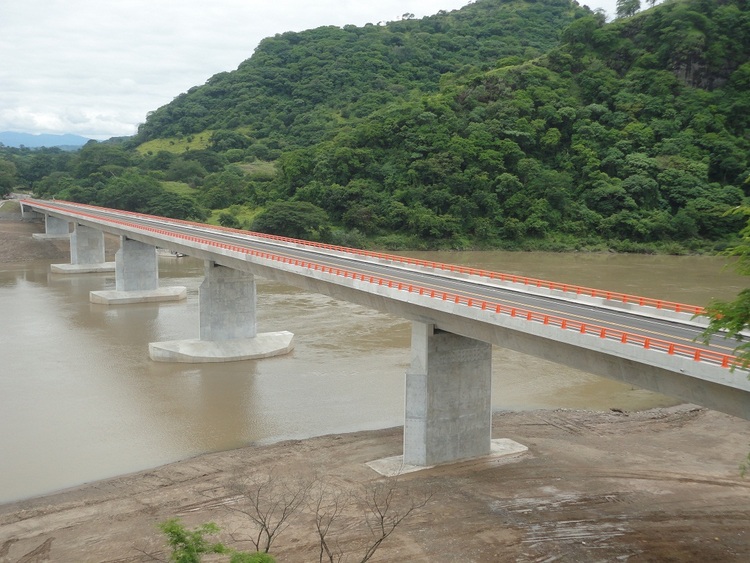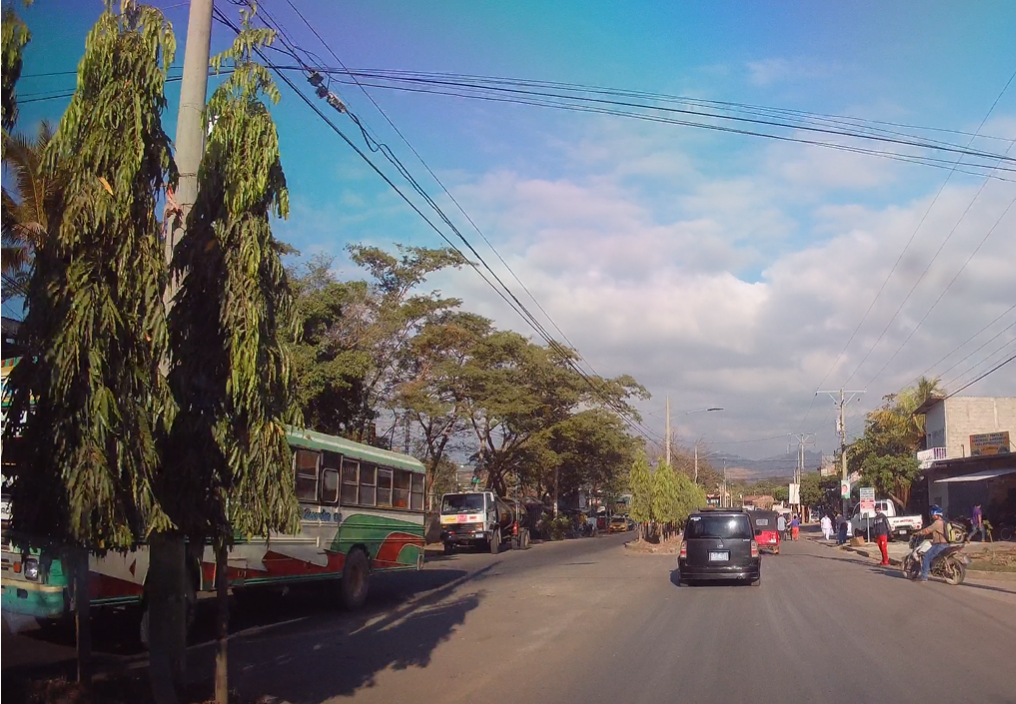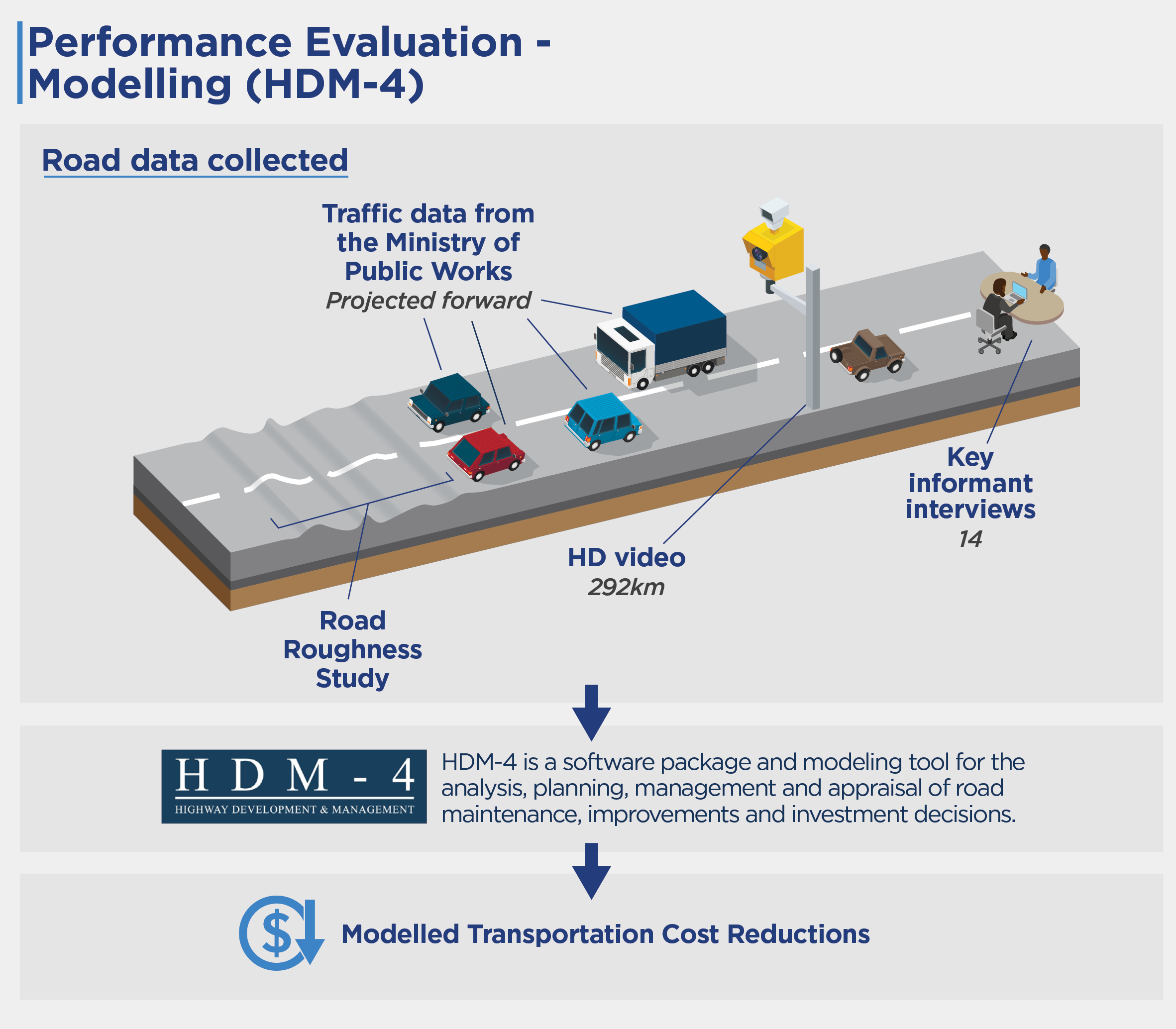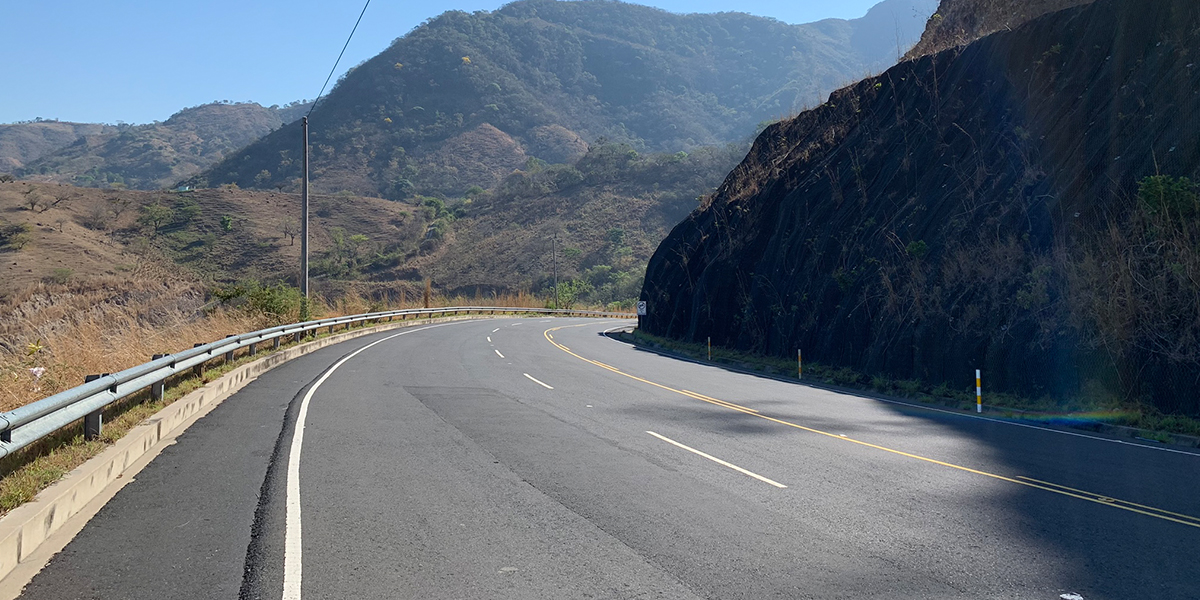Program Overview
MCC’s $449.6 million El Salvador Compact (2007-2012) funded the $268 million Connectivity Project to build, improve, or rehabilitate 23 bridges and 223 kilometers of road. The project was based on the theory that improving road quality would lead to reduced travel costs and decreased travel time, leading to increased use of the road. Increased usage of the road would then enable communities to participate more fully in the national and regional economy.
This evaluation complements the interim impact evaluation of the Connectivity Project published in 2016.
Download Spanish translated evaluation brief.
Key Findings
Implementation
- The project improved 223 kilometers of road, including a few kilometers of urban access roads and 219 kilometers of the Northern Transnational Highway, reducing its roughness, and delivering a fully paved highway.
- Construction cost increases, partially due to high commodity prices, resulted in fewer kilometers being completed than expected and the cancellation of the Network of Connecting Roads Activity.
Maintenance
- Using innovative data collection techniques, the Highway was assessed to be in good condition eight years after construction. There is evidence of road maintenance on some sections. The Highway will require a maintenance intervention soon, but authorization for this work appears unlikely.
Road Usage
- Travel time along the Northern Transnational Highway from Guatemala to Honduras was reduced from 17 hours to 6.1 hours.
- Conceived as a transnational highway, traffic is yet to fully materialize and realize the potential of MCC’s investment. Some of the remote mountainous sections have lower traffic volumes than originally expected, and there is no evidence of diverted traffic.
Evaluation Questions
This final performance evaluation was designed to answer the following questions:- 1 Was the project implemented as planned?
- 2 Will investments made under the project be adequately maintained?
- 3 Who is travelling on the road and how long does it take to move along key routes?
- 4 How are benefits from the project distributed among road users?
Detailed Findings
These findings build upon the interim evaluation report results published in 2016.Implementation

Puente Nuevo Edén Bridge
The Northern Transnational Highway Activity had to be reduced in length from 291 km to 223 km to avoid cost overruns. Funds for the Network of Connecting Roads Activity, which was designed to improve approximately 240 km of tertiary roads, were reassigned to the Highway Activity, which meant cancelling that activity entirely. Final MCC investment costs for the Highway Activity were double that of initial estimates increasing from $140 million to $268 million.
The roughness of the highway reduced from 10.2 m/km to 2.0 to 2.2 meters/kilometer delivering a fully paved highway for the first time. The project also built two new bridges over the River Lempa.
Maintenance
The Road Conservation Fund (FOVIAL) is a public utility responsible for road maintenance activities in El Salvador as a second-generation road maintenance provider. FOVIAL is funded through a gas-tax which is levied at the pump and is ring-fenced for maintenance activities. FOVIAL follows U.S. practices and policies, and better funding has led to improved road standards.The evaluation concluded that the Northern Transnational Highway will require a maintenance intervention soon (that is, resurfacing as soon as some road sections show cracking and disintegration close to a maintenance tipping point). Without intervention, the condition of the Highway will likely deteriorate. Based on evidence of maintenance activities, authorization for this work appears unlikely.
Road Usage

Road leaving out of Metapán toward Guachipilín
Analysis of the Ministry of Public Works data showed that traffic volumes remain low (less than 500 vehicles for the mountainous section) along the Highway, which is well below traffic forecasts made during the design phase. There is no evidence in the analyzed traffic data of diverted traffic or significant traffic growth, which were both important components of the estimated economic benefits.
Three-quarters of traffic along the Northern Transnational Highway comprised private cars or pick-ups, with pick-ups observed to carry either agricultural produce for market or construction materials. Smaller two-axle trucks and very few semi-trailer trucks were seen along the Highway, reflecting low levels of economic activity in what is a mountainous area of El Salvador. Despite the low volumes of traffic, many residents of the Northern Zone were standing dangerously in the back of trucks or pick-ups, suggesting a market for travel exists but is yet to be addressed by formal regulated public transport providers.
Economic Rate of Return
MCC considers a 10% economic rate of return (ERR) as the threshold to proceed with investment.- 23.9% Original ERR
- 0.2% Compact Close-out ERR
- much lower traffic than originally envisioned, including little diverted traffic from other routes, including the Pan-American Highway, and
- a substantial (100 percent) increase in investment costs.
MCC Learning
- Feasibility studies should be completed before the program implementation timeline begins.
- MCC should question key assumptions that drive the benefits in the economic analysis.
- MCC should work with partner countries to establish a traffic monitoring system through which the country can collect reliable estimates of traffic volumes.
- There are limitations to conducting final evaluations eight years after the program ends.
Evaluation Methods

Datasets in the HDM-4 model were updated to reflect actual investment costs, observed and forecast traffic, road sections constructed, updated maintenance assumptions and actual road conditions. The HDM-4 model was then re-run to estimate an ex-post ERR.
Quantitative data collection included a road roughness and road condition study and high-definition videos of the improved roads, which took place in El Salvador in January 2021. Traffic counts were cancelled due to COVID-19, so an older dataset from the Ministry of Public Works was used for the analysis as a workaround.
Qualitative data collection included 14 key informant interviews conducted remotely from November 2020 – January 2021. Secondary data on traffic counts, maintenance budgets, and reports prepared by implementers were also used.
Since the road improvements were completed between 2011 and 2012, the exposure period was approximately eight years.
2021-002-2609


